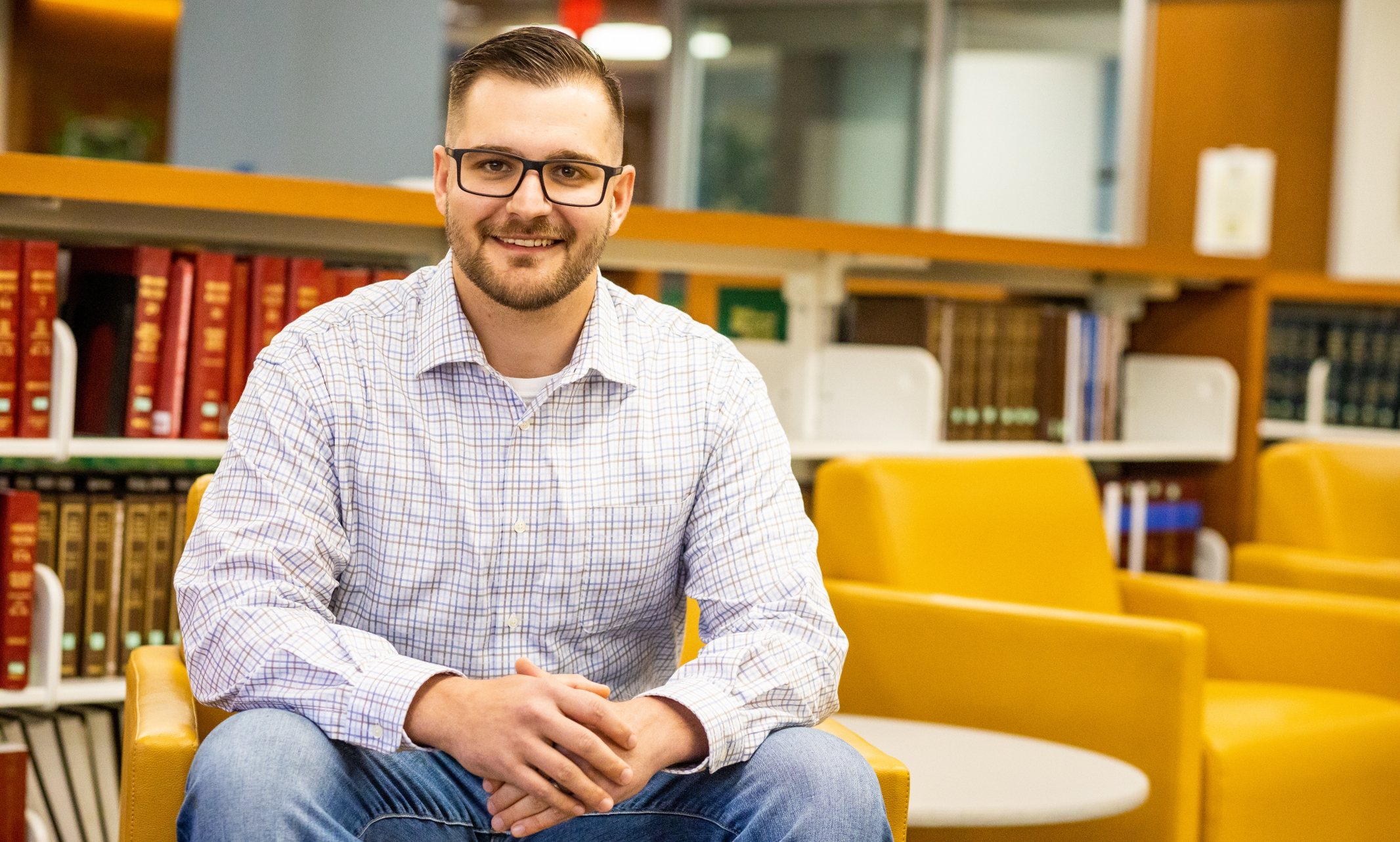
Daniel Foose found an affinity for agriculture while working at a hog farm; now he wants to focus his future law practice in that industry
Roos don't just dream, they do. Our students turn ideas into action every day. Get to know our people, and you'll know what UMKC is all about.
Daniel Foose
Anticipated graduation year: 2023
UMKC degree program: Juris Doctor
Hometown: Marshall, Missouri
Given his chosen career arc, you’d be tempted to assume that Daniel Foose grew up on a farm. Not so.
“While my family did not own a farm or have anything to do with farming, I was fortunate enough to grow up around farming and agriculture,” he said. “In high school, I was very involved in FFA (a national agriculture education and leadership program) and earned my American FFA Degree. While in high school and even through college, I worked at a hog farm in Marshall.”
While earning his undergraduate degree at Northwest Missouri State University, he set a course for a career in criminal law. He interned for the Nodaway County prosecutor, shadowed the Nodaway County associate circuit judge and eventually worked for the Saline County prosecutor in Marshall.
A local internship convinced him to make a course correction.
“During the summer after 1L year, I had the opportunity to work as an intern for Seaboard Corporation, a Fortune 500 agribusiness company located just outside of Kansas City in Merriam,” Foose said. “Seaboard is a major producer of pork, and I knew about them from my time working at the hog farm in high school and college. After interning for the summer, Seaboard graciously offered me the opportunity to stay and work as a law clerk for Seaboard Foods.”
Long term, he plans to begin his career in general business litigation, then move to a focus on litigation involving agribusiness.
“My education at UMKC has been challenging, yet fulfilling,” he said. “I have enjoyed learning from professors who are passionate about the law and the areas they teach, and I appreciate the variety of classes that are offered. Both the professors and the law school take seriously the charge of preparing the next generation of lawyers, which is a huge benefit to myself and all who attend UMKC School of Law.”
Why did you choose UMKC?
I chose UMKC because it is relatively affordable and close to home. Additionally, I have known and admired several attorneys that went to UMKC School of Law.
Why did you choose your field of study?
I chose the legal field because I knew it would put me in a great position to help others. Additionally, I had an absolutely wonderful advisor and mentor, Dan Smith, Ph.D., at Northwest Missouri State. Smith and the other great professors helped me in my decision to pursue a law degree.
What are the challenges of the program?
Law school is demanding – mentally, emotionally and financially. For me, the biggest challenge has been balancing my time so that I am able to fulfill my personal obligations while in law school.
What are the benefits of the program?
My law school peers are some of the most talented and intelligent people I have ever met. I have had professional opportunities that I would have never thought possible. Most importantly, I have made lifelong friendships in law school.
How has your college program inspired you?
I have achieved far more than I anticipated when I first started law school at UMKC. Finding academic success in law school gave me the confidence to go and seek out opportunities, both personally and professionally, that I otherwise wouldn’t have.
Since entering college, what have you learned about yourself?
I have learned that the difficulties and hardships you endure will only prevent you from being successful if you let them. No matter where you are from or what you have been through, you can accomplish anything.
Are you a first-generation college student? If so, what does that mean to you?
I am not a first-generation college student. My mother made the brave decision to go to college after my father passed away and successfully graduated with her bachelor’s degree. I am, however, the first person in my family to go to law school (or graduate school in general) and will be the first lawyer in my family.
Who/What do you admire most at UMKC and why?
I admire my classmates. My class started law school while the pandemic was in full swing, and, even through Zoom classes, and never having a snow day, we made it through.
Jul 31, 2023
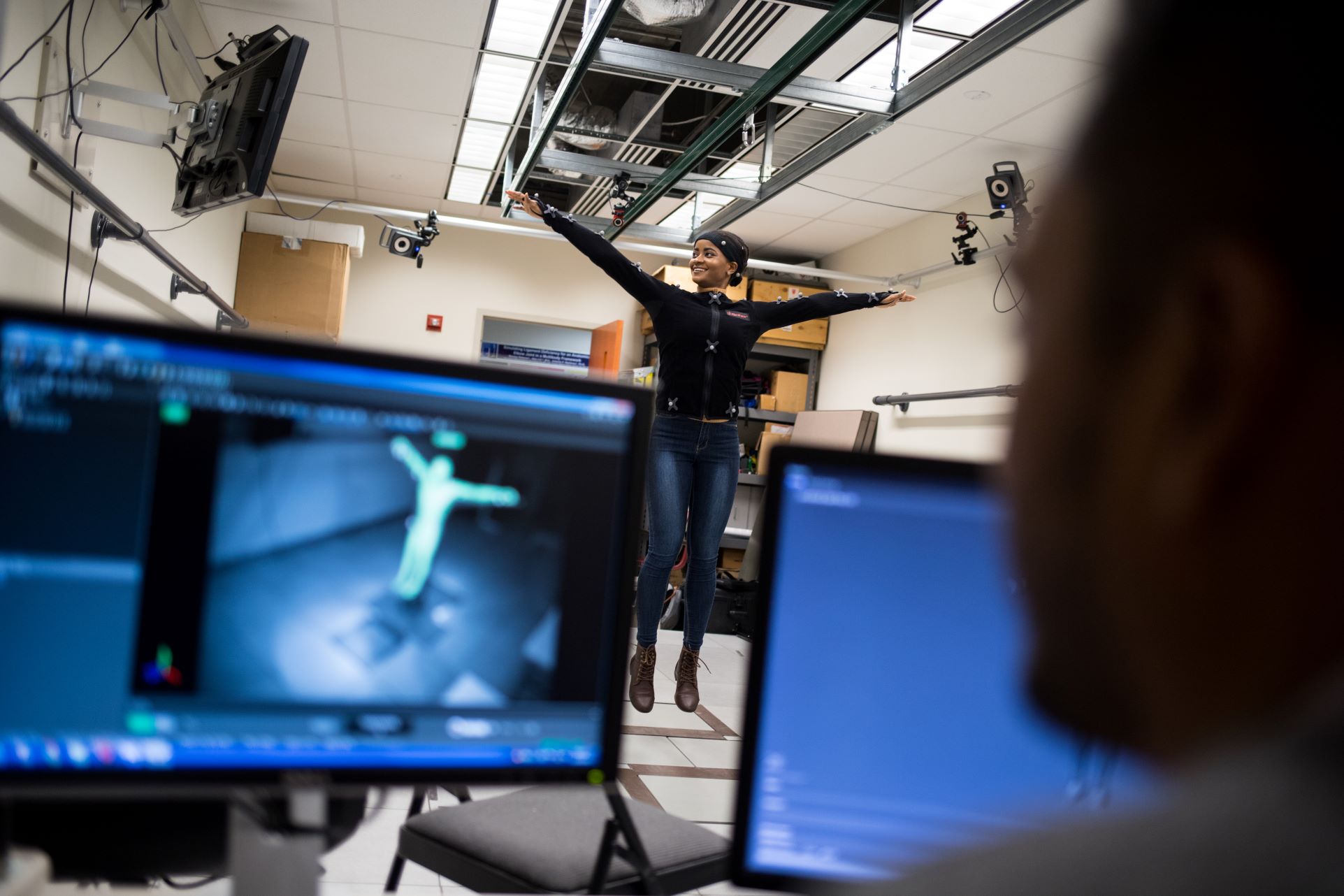
Includes undergraduate and graduate degree options as well as an accelerated five-year combined degree
The University of Missouri-Kansas City School of Science and Engineering has officially rolled out its biomedical engineering program.
The program introduces students to both medicine and engineering principles to support innovation and discovery in biomechanics and orthopedics, imaging, bioinformatics, biotransport, bioelectronics and medical devices.
“The program will also expose students to clinical aspects of biomedical engineering through collaborations with our medical school, which is not always the case in many undergraduate programs,” said Antonis P. Stylianou, Ph.D., who will be teaching as an associate professor as part of the biomedical engineering faculty.
The program is designed based on a broad approach, combining aspects from electrical engineering, mechanical engineering, computer science, chemistry, biology, physics, medical training, pharmacology and pure biomedical engineering courses.
The faculty reflects this diverse field, with professors from multiple disciplines teaching courses including engineering, medicine, pharmacy, dentistry, nursing and biological sciences. This multidisciplinary approach puts UMKC in a unique position to lead new breakthroughs in bioengineering.
“Research related to bio and health technologies have increased at an astounding rate within the School of Science and Engineering at UMKC over the past few years ,” said Katherine Bloemker, assistant dean of academic affairs. “This research focus provides the perfect foundation for our biomedical engineering degrees. Plus, the UMKC Health Sciences Campus and the proximity of local research hospitals such as Children’s Mercy, University Health and Saint Luke’s provide unique opportunities for students to explore this field.”
With the $32 million state-of-the-art Robert W. Plaster Free Enterprise and Research Center, students will be able to utilize facilities such as the Innovation Studio and the research labs. The building is equipped with cutting-edge technology, such as 3D printing labs, that will prepare graduates to excel in fields like careers in engineering, health care, medicine, dentistry, biotechnology, bioinformatic and pharmaceutical fields.
Employment of bioengineers and biomedical engineers is projected to grow 10 percent from 2021 to 2031, faster than the average for all occupations, according to the U.S. Bureau of Labor Statistics.
Atlas Sizemore came to UMKC as a freshman, before the bioengineering degree launched, with the intent to enroll in the program when it launched. Now a sophomore, Sizemore is excited to join the program.
“I plan on getting my graduate degree in prosthetics and going on to be a prosthetist,” Sizemore said. "I think that the biomedical engineering degree at UMKC will really help to prepare me with skills in design as well as the medical foundation of my work." Sizemore is particularly looking forward to taking 3D printing and design.
In the future, the program will have a dedicated space in the $100 million Healthcare Innovation and Discovery Building, located at the UMKC Health Sciences Campus. Construction for that building is expected to begin later this fall, with a projected opening in 2026.
Jul 31, 2023

Amy Patel, M.D., championed a new law requiring medical insurers to cover all costs
Amy Patel, M.D., of the University of Missouri-Kansas City School of Medicine, played a leading role in bringing about a new law in Missouri that requires health insurance companies to pay the full cost of diagnostic breast imaging without charging patients a co-pay or deductible.
Patel is an assistant professor of radiology at UMKC, medical director of the Breast Care Center at Liberty Hospital and a 2011 alumna of the UMKC School of Medicine. She worked closely with State Rep. Brenda Shields and the Susan G. Komen organization to get the legislation drafted and passed. The legislation also had support from The Missouri State Medical Association, Missouri Radiological Society and the Missouri Society of Pathologists. Gov. Mike Parson signed the bill into law in July, and it takes effect in January 2024.
Diagnostic imaging tests, such as 3D mammograms, MRIs or ultrasound exams, play a critical role in getting patients an early start in treating breast cancer, which greatly improves odds of overcoming the disease.
This was not Patel’s first foray into advocacy on behalf of patients. In 2020, she campaigned for a new law that requires insurance companies to pay for breast cancer screenings for patients ages 25 to 29 if they are at higher risk, as well as screenings every six months from age 30.
In 2022, Patel was named the Kansas City Chiefs Fan of the Year in recognition of her role as a leading community advocate for access to breast cancer treatment care.
We caught up with Patel on the new legislation.
What is the primary significance of this new law?
This law requires Missouri insurance carriers to cover diagnostic breast imaging for patients without co-pay or deductible. This means that if a patient is called back for additional breast imaging testing such as a diagnostic mammogram, ultrasound or MRI, it must be covered without co-pay or deductible. Diagnostic breast imaging also encompasses patients who present with a lump or pain, or who have had prior surgeries for breast cancer which necessitate a diagnostic mammogram follow-up for a number of years.
Have you had experiences with patients who delayed diagnostic breast imaging because of the cost? What are the implications of that?
Unfortunately, yes. We have had patients who do not return for additional diagnostic breast imaging testing when we know they have a breast cancer we need to address, and/or they return or present when the cancer has spread to the lymph nodes in the armpit and even other parts of the bodies at times.
Is that why you worked so hard on this?
I worked hard on this because I live and breathe this every day in clinical practice. Patient access and bridging the gap of breast care inequities has become a life's calling and a focus of my career. I felt that I was in a position to advocate for change, and although we were not successful in getting this legislation passed last year, we soldiered on this year and were successful. Too many lives depended on it for us to not continue to fight for patient access.
How does advocating for important changes like this demonstrate your commitment to your mission as assistant professor of radiology at UMKC School of Medicine?
As much as I do have an avid interest in education and research, I feel that it is equally imperative to commit efforts to boots-on-the-ground advocacy and access. As I always say: what good is the research we do if we are not going to take that information and do something about it to positively and directly affect our patients? Through evidence-based care, we can bridge the gap of breast care inequities, and I am so appreciative that I am able to do this type of work, which is valued and respected by the UMKC School of Medicine.
Jul 28, 2023
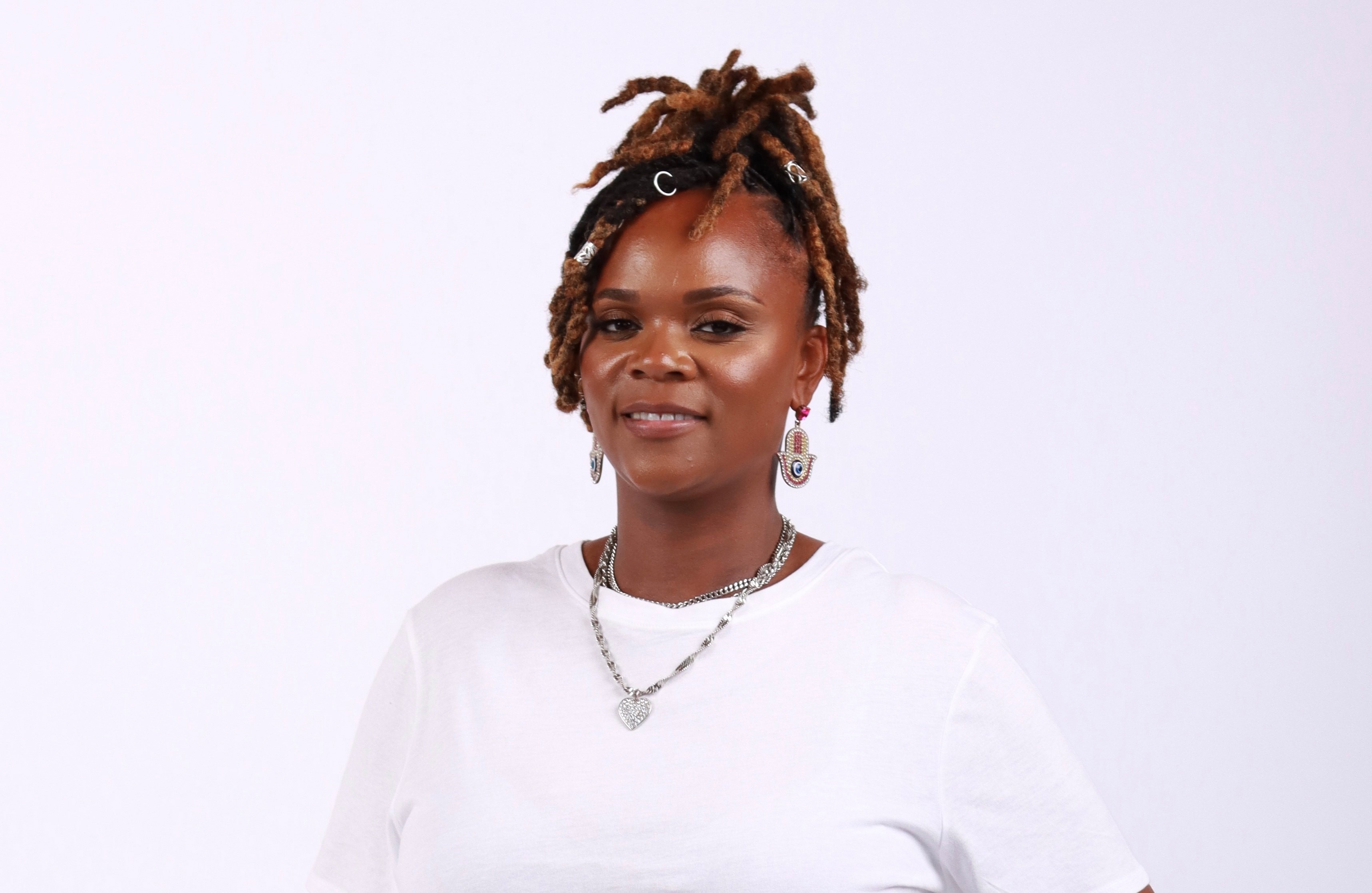
UMKC Institute for Urban Education prepped her for teaching, classroom management, commitment and fun
Tanya Jones knew she wanted a career that enabled her to be a part of something bigger than herself.
“I wanted to be a part of shaping young children’s minds and laying the foundation for generations to come,” Jones says. “I had many teachers who encouraged and guided me to become a better student, and coaches who taught me important lessons about being on a team.”
An alumna of Westport High School, Jones came to the University of Missouri-Kansas City Institute of Urban Education because she wanted to partner with families to ensure their children succeed academically, socially and emotionally.
“I wanted to be a role model for students who did not have that in their lives.”
As part of the UMKC curriculum, Jones was a student teacher at the Academy for Integrated Arts (AFIA) in Kansas City. She says it was a great opportunity to experience the culture of the school, understand what it takes to make a school run and see the benefits of teachers and staff who really look out for each other.
“It was a great experience. They welcomed me with open arms.”
In addition, her cooperating teacher allowed her to be hands-on in the classroom.
“She was warm and welcoming, and was a great role model for someone like me, who is fresh in the field, to see what teaching is like on a day to day basis.” Jones says.
Jones learned a lot from student teaching.
“I learned classroom management skills, how to lesson plan and to never take things personally. Now I understand a student’s behavior is telling me something and it’s my job to proceed in a way that will benefit the student.”
Even though she’d done her student teaching there, she was nervous when she received a call from AFIA to set up a job interview.
“I was excited and nervous at the same time. We’d done role playing and acting out scenarios in class at UMKC, but I’d never had an interview like that before. I put my best foot forward and then I got a call that they wanted me to teach at AFIA.”
On her first day she was nervous, but confident.
“I knew that UMKC prepared me for my first day and the years to come. I was excited to implement what I’d learned in the classroom and student teaching.”
Jones found that she had made a good career choice. She loves building relationships with her students and their families. In addition, she received the Outstanding Beginning Teacher Award from the Missouri Association of Colleges for Teacher Education.
With her first year behind her, she has some advice for people who want to be teachers.
“Go slow to go fast. Don’t take anything personally,” Jones says. “Have fun and the intention to build a strong foundation in your classroom. A strong classroom culture will develop positive habits. Make sure you enjoy being around kids, and that you have enough patience for them and their families. It’s better to keep an open mind and be ready to lead.”
Jul 20, 2023
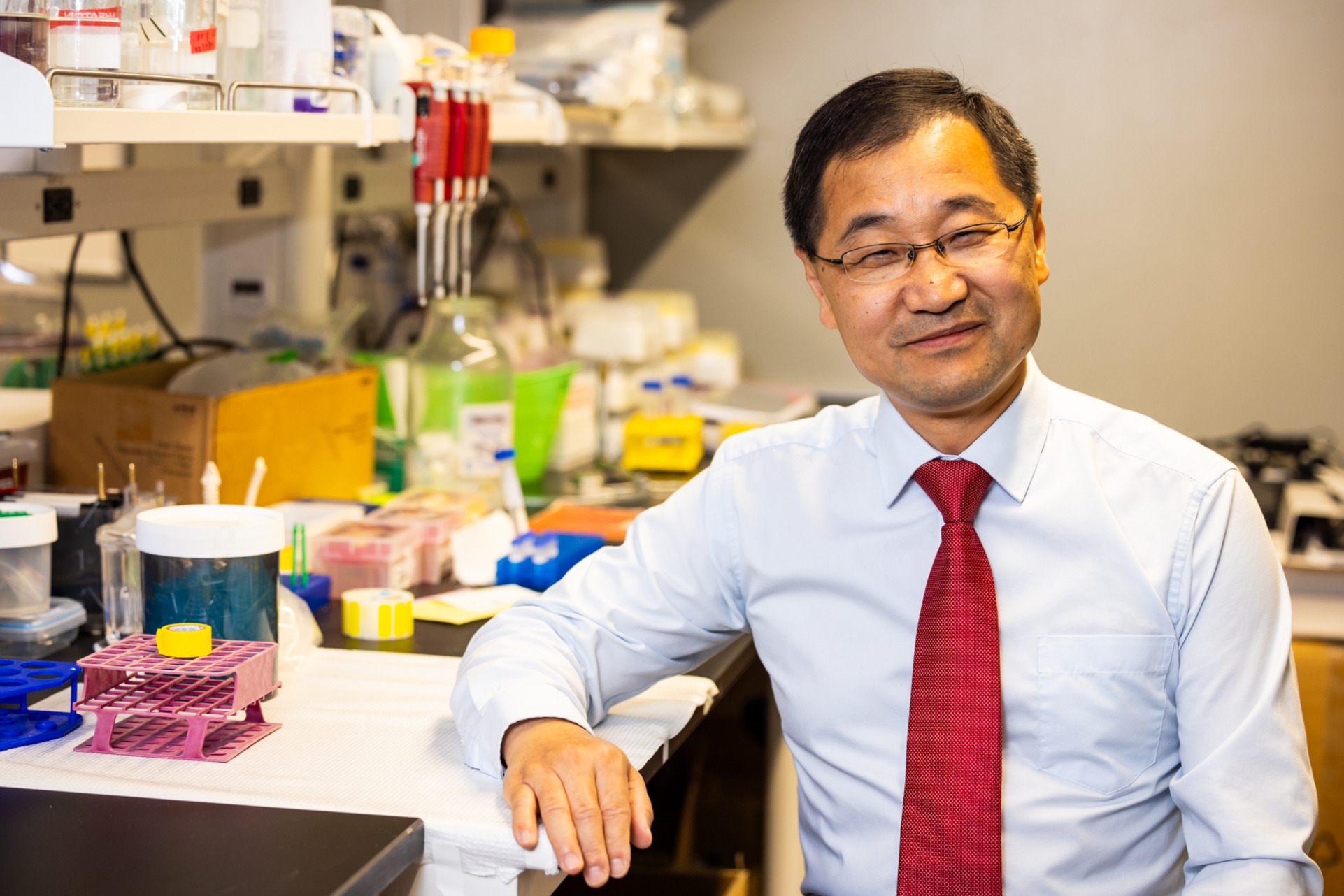
Shizhen “Jeff” Wang’s project will be funded for up to four years
Shizhen “Jeff” Wang recently received the R01 grant, a research project award from the National Institutes of Health (NIH), which will support his research for up to four years with about $1.3 million.
Wang credits the UMKC Center for Advancing Faculty Excellence (CAFÉ) program for help in securing the funds.
The CAFÉ program is currently in its second year. By providing comprehensive resources and support under four pillars (teaching and learning, service and engagement, research and creativity and faculty life and leadership), the program aims to advance faculty excellence.
One of the resources under research and creativity include workshops. During the workshop Wang attended, Chris Liu, Ph.D., Yong Zeng, Ph.D. and Alexis Petri, Ph.D., shared their experiences applying for federal grants and, more importantly, as grant reviewers.
“This was especially helpful for me as a junior faculty member without grant-reviewing experience. Developing the ability to write grant applications from the standpoints of reviewers is a key point to impress scientific reviewers and get their endorsements on my research project,” Wang said.
The CAFÉ workshop that Wang attended also featured experienced senior faculty Mark Johnson, Ph.D., professor at the UMKC School of Dentistry. His talk on preparing compelling grant applications to the NIH and effective ways to communicate with program officers to get their help and support was extremely helpful for Wang as he prepared his grant summary proposal. Feedback from other workshop attendees and the seed money that supported Wang’s quest to obtain his research’s preliminary data were additional benefits the CAFÉ workshop provided him as he worked on his grant application.
The grant will help support Wang’s project to understand the structure, function and drug modulation of cardiac voltage-gated sodium channel Nav1.5.
Wang’s lab will research how the Nav1.5 channel opens or closes in response to electrical stimuli and how genetic mutations alter the structure and function of the Nav1.5 channel that could lead to life-threatening diseases. These studies will pave the way for developing novel drug molecules to treat arrhythmias with higher specificities.
Jul 18, 2023
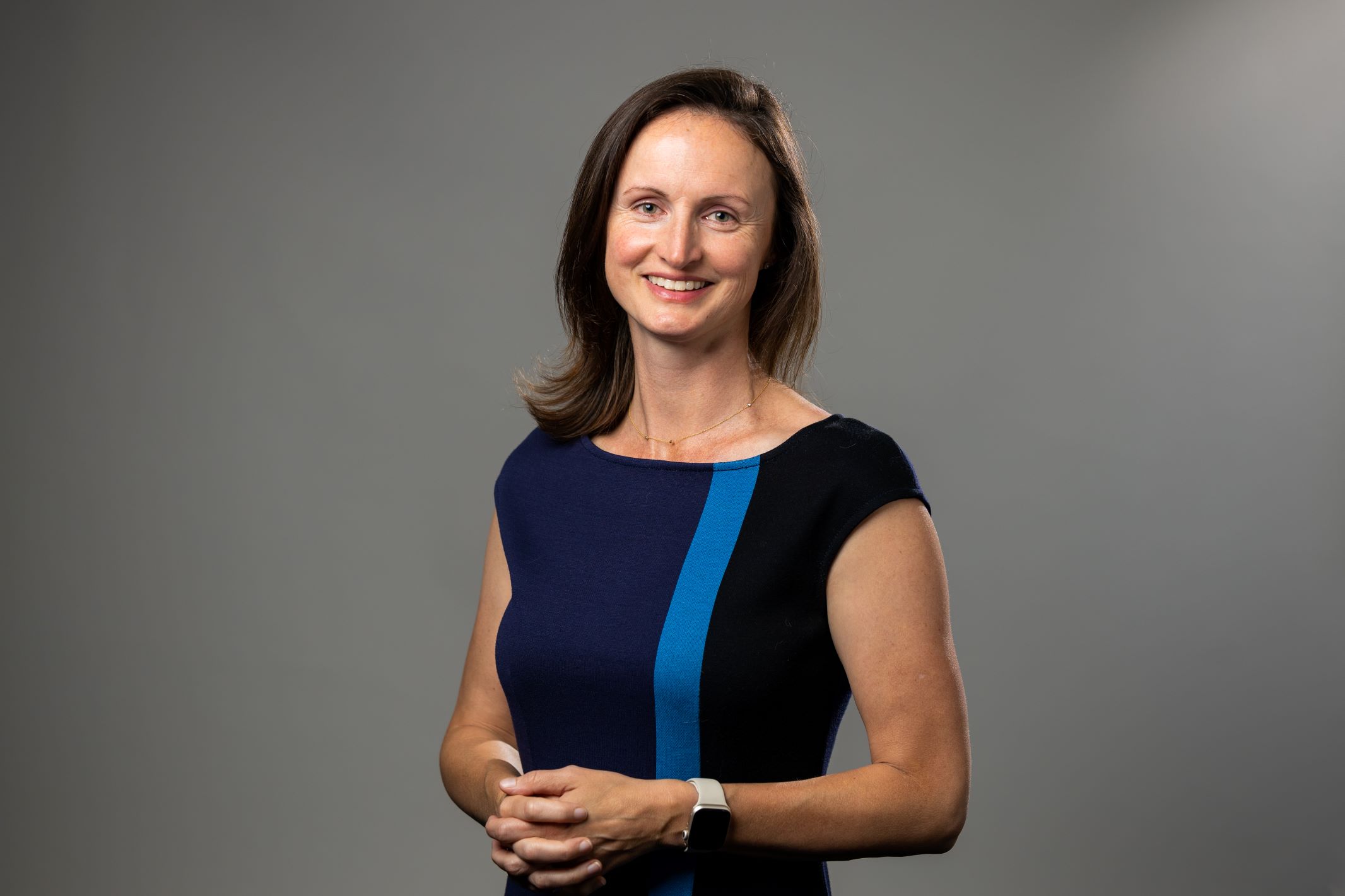
Meet the new UMKC School of Education, Social Work and Psychological Sciences leader
Sara Helfrich has joined the UMKC School of Education, Social Work and Psychological Sciences as inaugural dean.
Previously, Helfrich served as the interim dean of the Patton College of Education at Ohio University, where she oversaw four departments: Counseling and Higher Education; Recreation, Sport Pedagogy and Consumer Sciences; Educational Studies; and Teacher Education. In this role, she oversaw 125 faculty and staff at six campuses, serving nearly 2,000 undergraduate and graduate students. She received a Ph.D. in Instruction and Learning, Reading Education Cognate from the University of Pittsburgh.
Did you have teachers who inspired you?
I did, though not at the time. My third-grade teacher was terrifying. When I look back on it, it’s not how we would teach today, but she was a fantastic teacher of the whole person. She taught us to speak up for ourselves. The professor of my introductory education course my freshman year of college really challenged us to think about things that, at that time, were not talked about like they should have been and are today, like the gender assumptions we make about children, the toys we give them and how we expect them to play and act. She was very inspiring.
Why did you become a teacher?
From a young age, I just knew I wanted to be a teacher. I was drawn to it naturally. I liked working with people to help them learn and become better at something. My first teaching position was as a special education teacher. I loved the students, but I realized that I was unprepared to work with them because they all struggled with reading in different ways. As a second or third-year teacher, I didn’t know the best way to be helpful.
I decided to get my doctorate in literacy education. Pretty quickly I realized that I could have the most impact working with pre-service teachers. Teaching teachers meant that I wasn’t only helping the children in my classroom, but helping the children in all of my students’ classrooms.
What attracted you to UMKC initially?
When I was looking into the dean’s position, UMKC Forward was in process. I thought the programs that were coming together in the school were a really magical combination. They speak to each other, and they can stand alone. I was amazed at the possibility of the future career paths for our students and the opportunity for the faculty and the students to work together.
In addition, from the beginning, I was attracted to the university’s connection to Kansas City and its commitment to urban areas of the city. I grew up in an urban public school system. In college, I did some of my teacher training in urban schools, and it was great. I was excited that UMKC was intentionally focusing on placing students and graduates into urban schools and other clinical settings in the city. It’s a great give-and-take relationship. The things our faculty and students offer to the city are valuable, but the community offers as much to us.
My goal is to spread the message of our outstanding programs and the opportunities available to our students and alumni. We are helping to create talented professionals in education, counseling, research and social work who are making significant contributions in their communities. In addition to their success, they are role models for the next generation.”
Jul 18, 2023
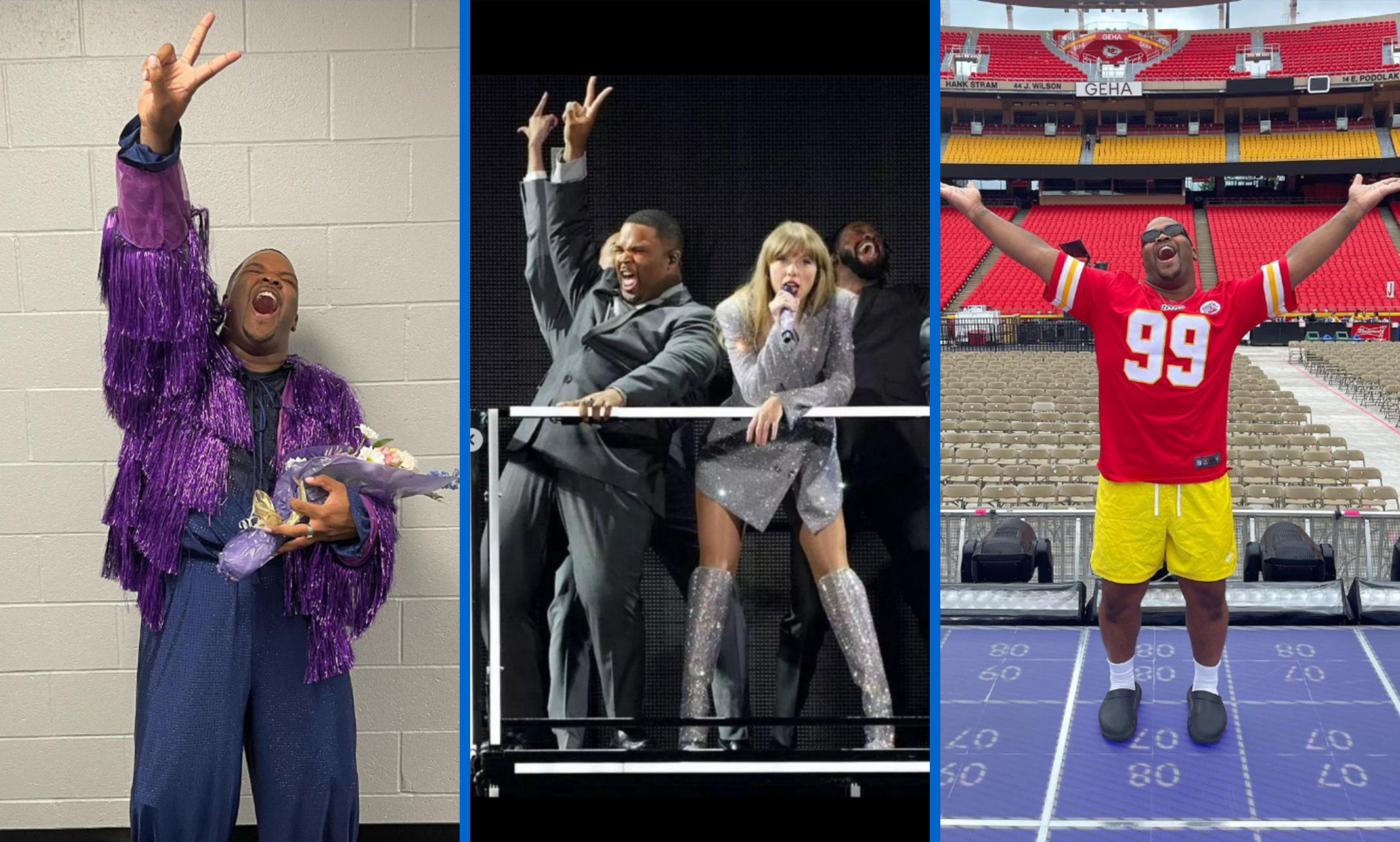
Conservatory alumnus Kameron Saunders even had the chance to ‘make the whole place shimmer’ in Kansas City recently
Kameron Saunders (B.F.A.) is currently on the Eras tour with Taylor Swift as a backup dancer. Although originally from St. Louis, Saunders considers Kansas City a second home.
Ahead of Swift’s Kansas City concerts, Saunders posted a picture on Instagram sporting a Khalen Saunders Chiefs jersey. It just so happens, the dancer and the former Chiefs defensive tackle are brothers! In the post, Saunders stood in Arrowhead Stadium with open arms and a gleeful smile.
“I graduated from UMKC, I lived here on and off for the past 4 years, my brother played for the Chiefs (2019-2023) and I’ve been to games at this stadium way more times than I can count to support my brother but never been on the field. Full circle!!!” Saunders wrote in the caption.
View this post on Instagram
A post shared by Kameron N. Saunders (@kamnsaunders)
The announcement of Saunders’s booking came on social media after the tour’s opening night in Glendale, Arizona.
“I can finally announce that I am one of 15 dancers (the only plus size) on the Eras world tour with Taylor Swift. I have been holding onto this since December when I got the call. We opened last night in Arizona and I am just overwhelmed by all the love messages and DMs.”
View this post on Instagram
A post shared by Kameron N. Saunders (@kamnsaunders)
It’s not the first time Saunders has shared the stage with a mega star. The choreographer and dancer also performed with Lizzo at the BET awards last year.
View this post on Instagram
A post shared by Kameron N. Saunders (@kamnsaunders)
Jul 17, 2023
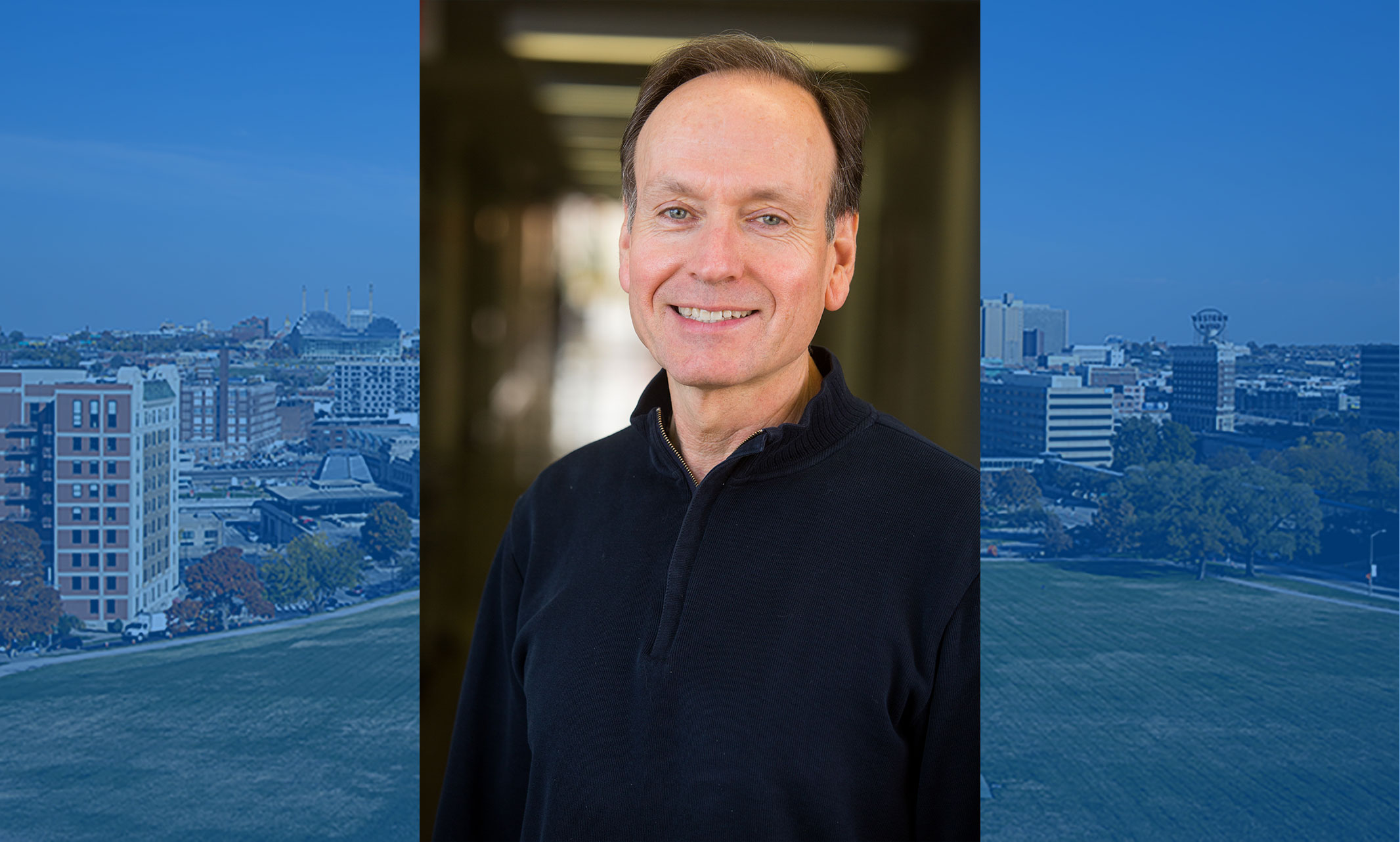
The award will fund promising research on a treatment for ALS
A University of Missouri-Kansas City researcher has secured funding for a project which could significantly improve the lives of people diagnosed with the deadly neurodegenerative disease ALS, commonly known as Lou Gehrig’s disease.
Thomas Menees, an associate biology professor, and his collaborator, Aaron Gitler from Stanford University, received the Frontiers Trailblazer Pilot award to further their research, which advances a promising drug therapy for the disease. Currently, there are no treatments that significantly alter the course of this disease, and death typically occurs within two to five years of diagnosis.
Most ALS cases are associated with clumping of the RNA-binding protein TDP-43 inside motor neurons of the brain and spinal cord, which leads to motor neuron death.
Gilter and Menees were both studying enzymes that suppress TDP-43 aggregation, and thus decided to collaborate to identify these enzymes that could help treat ALS and HIV infection when inhibited. Menees plans to carry the work forward by using the best inhibitor to develop a drug for ALS.
“We’re in the ‘Valley of Death’ stage right now in the drug development process,” Menees said. “This is where basic research discoveries that could help patients have advanced to a point where targeted, applied research funding is important, but hard to get. Our project will take our best inhibitor and design novel, more effective inhibitors that could slow or stop the progression of ALS.”
This project is a collaboration among UMKC, Stanford University and the University of Kansas.
Jul 13, 2023
